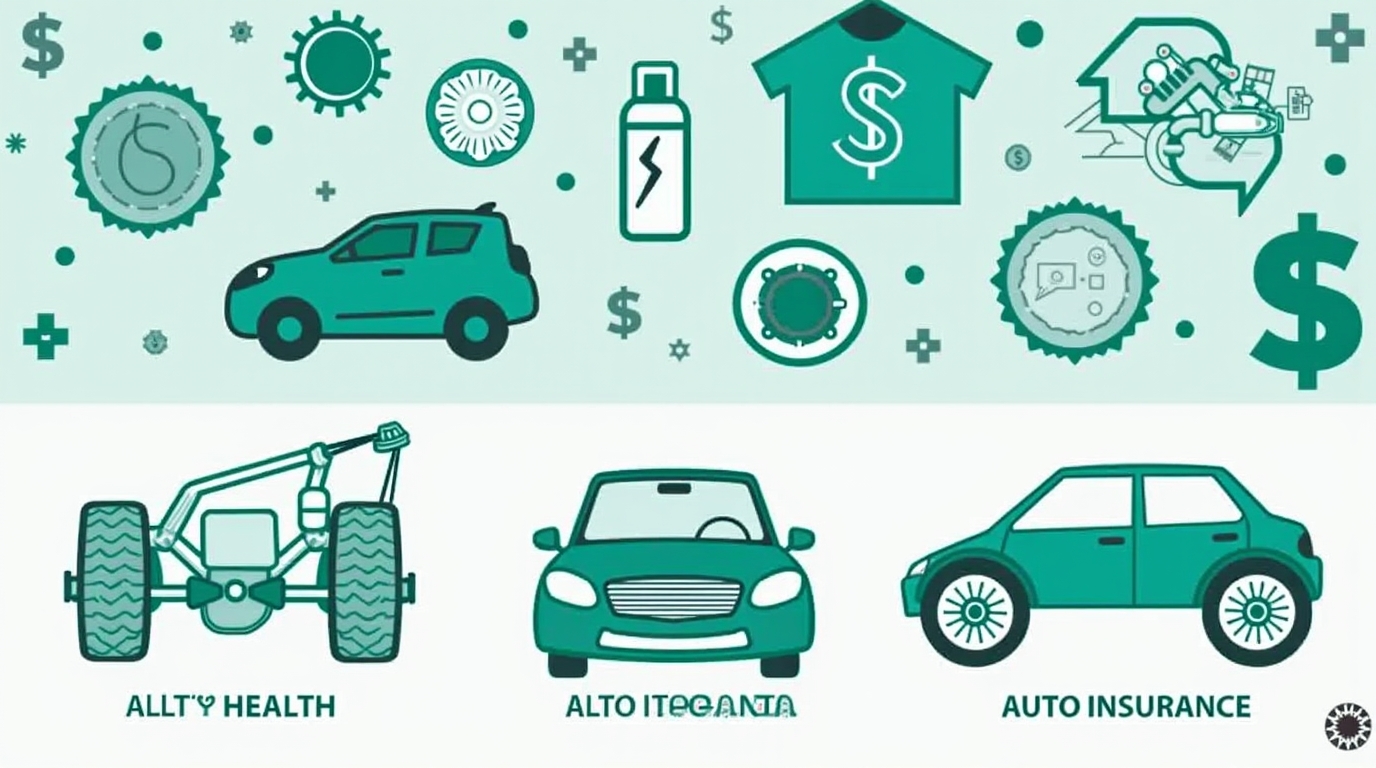Introduction
In today’s unpredictable world, insurance plays a crucial role in protecting your health, assets, and future. Whether it’s a sudden illness, a car accident, or an unexpected death, the financial burden of such events can be devastating. That’s where insurance comes in—providing a safety net when you need it most.
This comprehensive guide breaks down three essential types of insurance—Health, Life, and Auto Insurance—explaining why they matter, what they cover, and how to choose the right policy for your needs.
1. What is Insurance and Why Do You Need It?
At its core, insurance is a contract where you pay a company a premium in exchange for financial protection against unforeseen losses. Whether you’re dealing with medical bills, property damage, or income loss, insurance can provide peace of mind and stability.
Key Benefits:
-
Reduces financial risk
-
Covers expensive emergencies
-
Ensures family security
-
Required by law (e.g., auto insurance in most states)
Having the right insurance means you won’t have to drain your savings or go into debt in times of crisis.
2. Health Insurance: Your Lifeline to Affordable Medical Care
Medical expenses in the US and Canada can be overwhelming without insurance. Health insurance helps cover the cost of hospital visits, prescription medications, surgeries, and preventive care.
What Health Insurance Covers:
-
Doctor visits & specialist consultations
-
Emergency room visits
-
Mental health treatment
-
Prescription drugs
-
Surgeries & hospital stays
-
Preventive care (vaccines, check-ups)
Types of Health Insurance Plans:
-
HMO (Health Maintenance Organization): Lower costs but limited network
-
PPO (Preferred Provider Organization): More flexibility, higher premiums
-
EPO (Exclusive Provider Organization): In-network coverage only
-
High Deductible Health Plans (HDHPs): Lower premiums, higher deductibles
If you’re self-employed, unemployed, or between jobs, you can explore Marketplace health plans or Medicaid/Medicare, depending on eligibility.
3. Life Insurance: Protecting Your Loved Ones
Life insurance provides a payout to your beneficiaries in the event of your death. It’s a critical tool for anyone with dependents, debt, or long-term financial responsibilities.
Why Life Insurance is Important:
-
Replaces lost income
-
Pays for funeral costs
-
Covers outstanding loans or mortgages
-
Secures children’s education or spouse’s lifestyle
-
Offers peace of mind
Types of Life Insurance:
-
Term Life Insurance: Coverage for a set period (e.g., 10, 20, 30 years). Affordable, simple.
-
Whole Life Insurance: Lifetime coverage with a savings/investment component. Higher premiums.
-
Universal Life Insurance: Flexible premiums and death benefits with cash value growth.
Example Use Case:
A 35-year-old parent with a mortgage and two kids may choose a 20-year term policy for $500,000 to ensure family protection in case of untimely death.
4. Auto Insurance: Stay Legal and Stay Protected
Auto insurance is mandatory in most states and provinces. It protects you from financial loss in case of an accident, theft, or damage.
Basic Coverage Includes:
-
Liability: Covers damage you cause to others
-
Collision: Covers your car after a crash
-
Comprehensive: Covers theft, vandalism, natural disasters
-
Personal Injury Protection (PIP): Covers medical costs
-
Uninsured/Underinsured Motorist: Protects if the other driver has no or low coverage
Pro Tip:
Always compare auto insurance quotes online before buying. Rates vary significantly based on age, driving history, credit score, and location.
5. How to Choose the Right Insurance Policies
With so many options, it’s easy to get overwhelmed. Here’s how to make smart insurance decisions:
✅ Assess Your Needs: Consider your lifestyle, income, dependents, and risk level
✅ Compare Policies: Use comparison sites like NerdWallet, Policygenius, or Compare.com
✅ Check Company Ratings: Stick with trusted insurers (A.M. Best, Moody’s ratings)
✅ Review the Fine Print: Understand exclusions, deductibles, co-pays, and policy limits
✅ Bundle Policies: Some insurers offer discounts when you bundle home, auto, and life policies
6. Insurance is an Investment in Peace of Mind
Many people view insurance as an extra expense, but it’s actually a smart long-term investment. It shields you from unexpected disasters and offers protection when life takes an unexpected turn.
Without it, one accident, illness, or loss can wipe out years of savings and progress. With it, you gain stability, confidence, and security.
Conclusion
Insurance is more than a legal requirement or monthly bill—it’s a vital component of responsible living. By investing in the right health, life, and auto insurance policies, you protect yourself and your loved ones from financial ruin and emotional stress.
Start today by reviewing your existing policies or getting your first quote. The peace of mind is worth it—and so is the protection.
